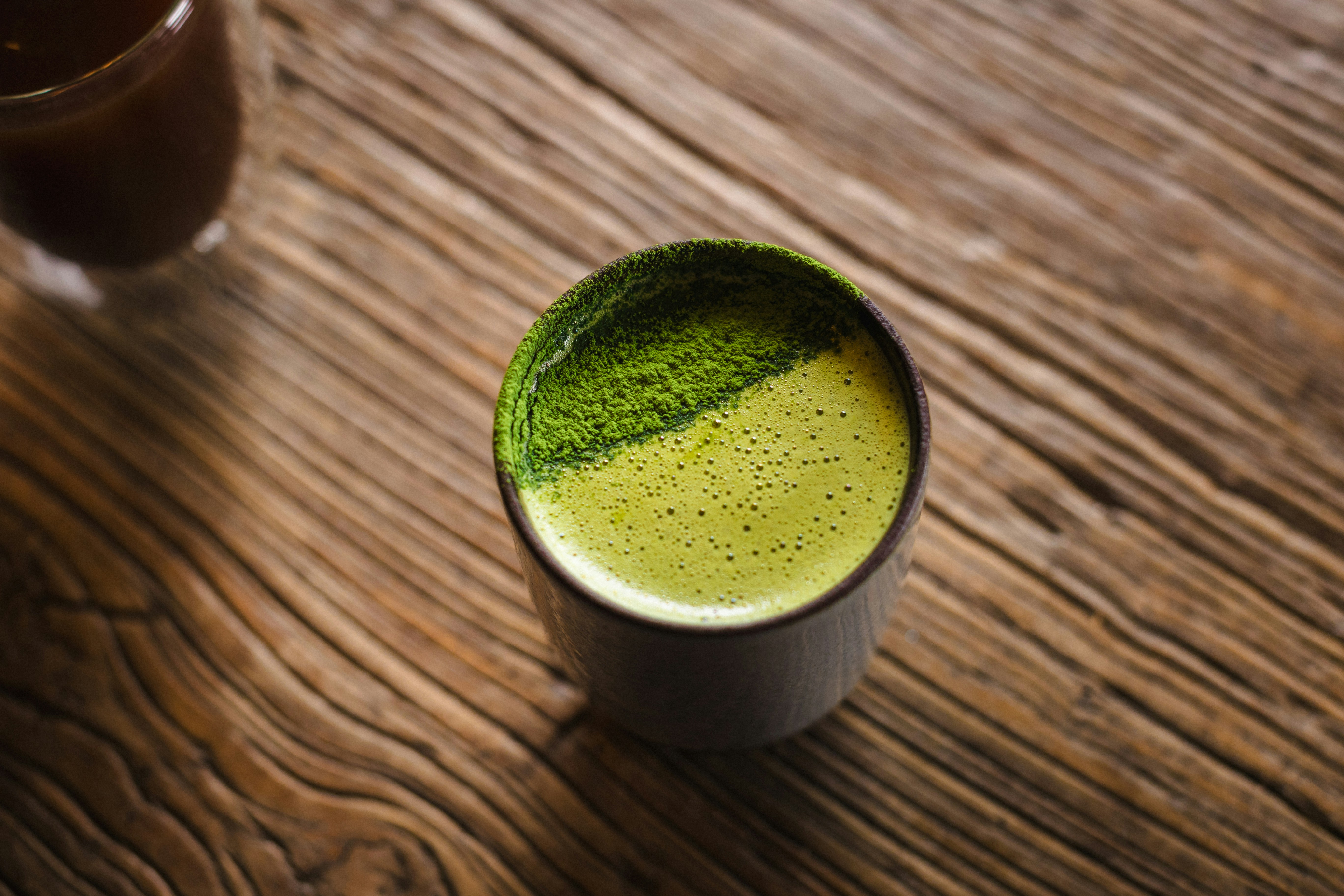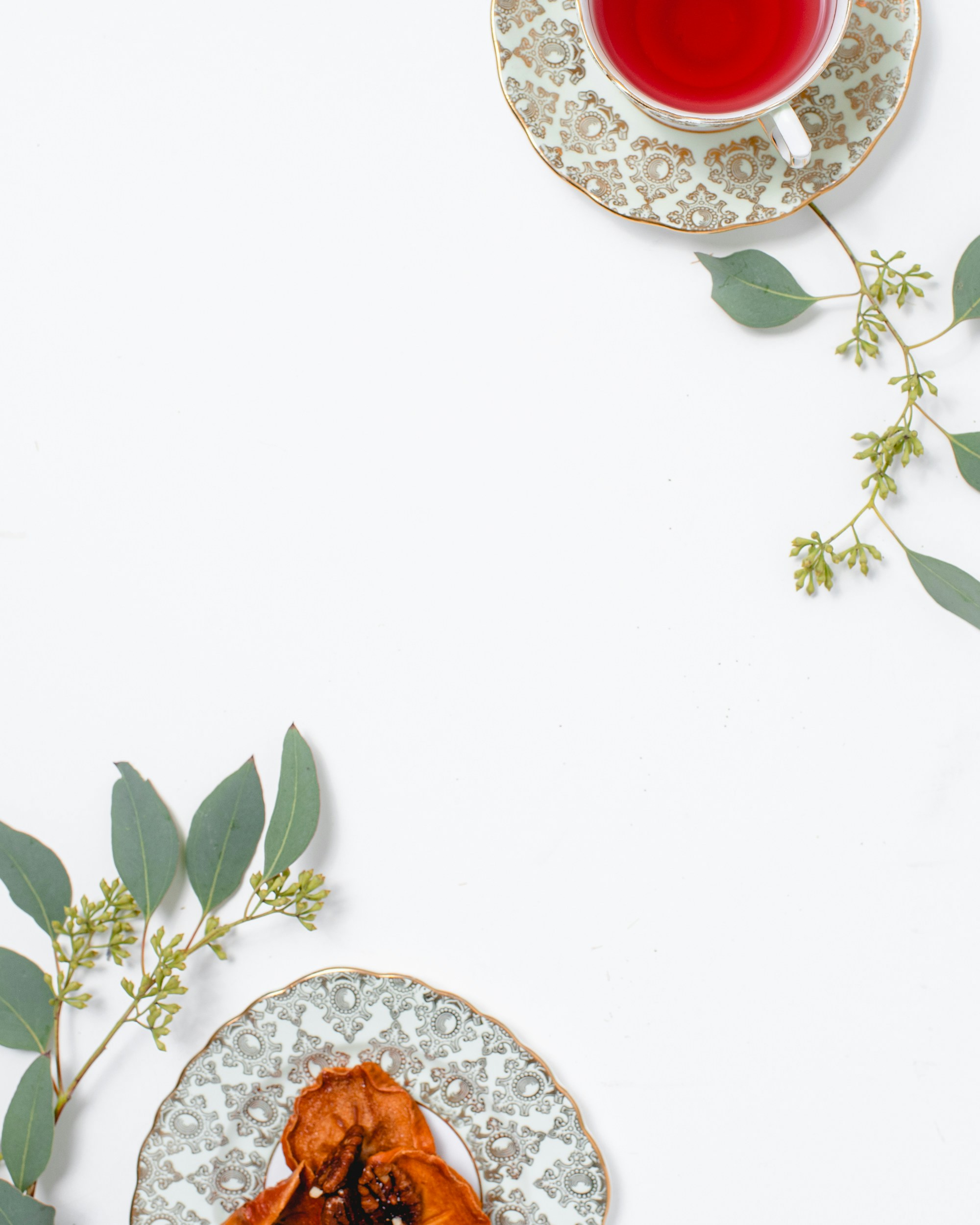Introduction: The Profound Connection Between Tea and Spirituality
Throughout history, tea has transcended its simple role as a beverage, evolving into a powerful tool for cultivating spiritual wellbeing across diverse cultures. The remarkable ability of tea to facilitate mindfulness and introspection has significantly shaped spiritual practices and enriched individual experiences worldwide. In numerous traditions, tea ceremonies provide a tranquil setting where participants can fully immerse themselves in the present moment, fostering a deep connection with their inner selves and the universe around them. This connection goes beyond simple relaxation; it touches upon the very essence of spiritual exploration.
Countless anecdotes from various cultures illustrate the strong link between tea and moments of introspection and personal renewal. For example, in Chinese culture, the practice of tea drinking is often intertwined with Zen philosophies, where the act of preparing and consuming tea becomes a form of meditation in itself. The inherent simplicity of this process allows individuals to quiet the mind and focus their thoughts, resulting in heightened self-awareness and spiritual clarity. In this context, tea acts as a catalyst, gently guiding spiritual seekers toward a deeper understanding of their truest selves and their place within the larger cosmos.
Furthermore, in Japanese traditions, the tea ceremony, known as ‘chanoyu,’ embodies a spiritual journey characterized by tranquility, harmony, and profound respect. Participants engage in this ritual not merely to enjoy the taste of tea, but to cultivate a sense of inner peace and interconnectedness with their surroundings and with each other. The deliberate intentionality behind each movement in the ceremony reveals a deep understanding of how tea can elevate one’s consciousness, emphasizing the seamless coexistence of spirituality and everyday experiences.
As we delve deeper into the historical significance of tea and its impact on spiritual wellbeing, we uncover a rich tapestry of practices and beliefs woven around this beloved beverage. Through shared stories, time-honored rituals, and personal experiences, tea invites us on an inward journey, enriching our spiritual practices and strengthening our connection to the divine, however we may define it.
A Detailed History of Tea: From Ancient Origins to Global Rituals
Tea, one of the world’s most widely consumed beverages, boasts a rich and fascinating history spanning millennia and encompassing numerous cultures. Its origins are generally traced back to ancient China, where, according to legend, Emperor Shen Nong discovered the drink serendipitously around 2737 BCE when tea leaves accidentally fell into his pot of boiling water. This fortuitous event marked the beginning of centuries of tea cultivation and appreciation, ultimately leading to the development of diverse tea rituals and traditions across the globe.
As tea spread beyond China’s borders, it began to acquire new meanings and forms in the cultures it encountered. In Japan, for instance, the tea ceremony, known as Chanoyu, was formalized during the 15th century and reflects a deep reverence for simplicity, tranquility, and the present moment. This ritual emphasizes mindfulness and presence, as participants engage in the meticulous preparation and savoring of matcha, a finely ground powdered green tea. The aesthetics of the ceremony encompass much more than just the beverage itself; they embody a profound philosophy of harmonious living and a deep connection to nature.
Similarly, in China, Gongfu tea is a traditional practice that showcases the intricate art of brewing and appreciating tea. This ritual involves a series of precisely timed steps, highlighting the importance of attention to detail and the cultivation of patience. It is not simply about the act of drinking tea; it is an expression of respect for the ingredients, the surrounding environment, and the shared experience with others. Such moments foster meaningful connections and enrich communal spiritual experiences.
Throughout history, tea has consistently been more than just a refreshing drink; it has served as a spiritual anchor within various cultures around the world. From the intricacies of Asian tea rituals to the widespread adoption of tea culture globally, these practices underscore the intimate relationship between tea and spirituality. The act of brewing and sharing tea has united people for centuries, providing a space for them to pause, reflect, and connect deeply with themselves, with each other, and with something larger than themselves.
Mindfulness and Mindful Brewing: The Transformative Art of Tea Preparation
The preparation of tea presents a unique opportunity to cultivate mindfulness, transforming a simple daily ritual into a profound meditative practice. The act of brewing tea demands focused attention, elevating the experience from mere consumption to a mindful ritual that nourishes both body and spirit. Creating a mindful tea ritual begins with the thoughtful selection of the tea itself. Whether choosing a fragrant herbal blend or a delicate green tea, the choice sets the tone for the entire experience. Each type of tea possesses its own unique nuances of flavor and aroma, inviting you to embark on a sensory journey of discovery.
Once the tea is selected, the brewing process becomes the central focus of this mindful practice. Begin by gathering the necessary tools: a kettle or teapot, teacups, and any other implements that enhance your experience. This preparation phase itself can be a grounding exercise, connecting you to the present moment. As the water heats, take a moment to inhale deeply, allowing the fragrant steam of your chosen tea to fill the air. This mindful act helps to center the mind and create a tranquil atmosphere. When the water reaches the optimal temperature, pour it over the tea leaves and observe as they unfurl, releasing their essence into the water. Pay close attention to this transformation, engaging both your visual and olfactory senses.
While the tea steeps, fully engage your senses by focusing on the colors, fragrances, and even the subtle sounds of your surroundings. Notice how the aroma of the tea evolves as it infuses the water, gently reminding you to remain present in the moment. When the tea is ready, take a moment to appreciate not only the taste but also the entire process that led to this point. Savor each sip slowly and deliberately, allowing the warmth and flavors to envelop your senses. By integrating these mindfulness practices into tea preparation, you can foster a deeper connection to yourself and cultivate a serene and centered spirit. In conclusion, embracing the art of mindful brewing can significantly enhance your spiritual wellbeing.
Health Benefits of Tea: Nourishing the Body and Soul from Within
Tea, a beloved beverage enjoyed worldwide, offers a wide array of health benefits that contribute to both physical and spiritual wellbeing. Different types of tea, including green, black, oolong, and herbal varieties, each possess unique properties that nourish the body and soul in distinct ways. Green tea, for example, is rich in antioxidants and is known to strengthen the immune system, which is crucial for maintaining overall health and vitality. The epigallocatechin gallate (EGCG) found in green tea has been linked to improved metabolic function and a reduced risk of chronic diseases, promoting a sense of vitality that often enhances one’s spiritual resilience.
Similarly, black tea, with its robust flavor and higher caffeine content, can enhance mental clarity and focus. For those seeking to deepen their meditation or mindfulness practices, the ritual of brewing and sipping black tea can create a calming and supportive environment, fostering deeper spiritual reflection. The presence of L-theanine, an amino acid found in black tea, has been shown to promote relaxation without causing drowsiness, making it a valuable companion for individuals on a spiritual journey.
Herbal teas, which may include ingredients like chamomile, peppermint, and rooibos, offer additional health benefits such as improved digestion and stress reduction. Chamomile tea, in particular, is widely recognized for its soothing properties, helping individuals unwind and achieve a more peaceful state of mind. Numerous personal accounts highlight the transformative health benefits experienced with regular tea consumption, from alleviating anxiety and improving sleep patterns to enhancing spiritual practices and promoting emotional balance.
While the health benefits of tea are significant and can undoubtedly support overall wellbeing, it’s important to remember that tea should not be considered a replacement for professional medical advice or treatment. Rather, it should be viewed as a valuable component of a holistic approach to health, enriching both the body and the spirit.
Tea as a Spiritual Companion: Connecting with Your Inner Self
Throughout history, tea has served as much more than a simple beverage; it has acted as a profound companion on one’s spiritual journey. The tranquility of a moment spent with a warm cup of tea can offer significant clarity, introspection, and solace, especially during challenging times. Many individuals find that engaging in a tea ceremony or simply sitting quietly with their favorite brew allows them to connect with their inner selves on a deeper, more meaningful level. This practice cultivates mindfulness, encouraging individuals to focus solely on the present moment, creating a sacred space for reflection and self-discovery.
When we intentionally create time for tea rituals, we provide ourselves with an opportunity to pause and reflect—a welcome respite from the demands of our often hectic lives. This tranquil pause creates an environment where deep thinking can flourish, promoting greater awareness of our thoughts, feelings, and experiences. Reflecting on personal moments shared with tea can be incredibly enlightening; whether it’s the calming effect of sipping a herbal infusion after a long day or the invigorating presence of matcha during meditation, each unique experience reinforces the notion that tea can serve as a powerful conduit for self-discovery, healing, and spiritual growth.
Creating a dedicated sacred space for tea practices within one’s home can further amplify their spiritual benefits. This involves designating a specific area that promotes peace and reflection—perhaps adorned with candles, plants, or meaningful artifacts that inspire calmness and clarity. Such a space becomes a personal sanctuary for introspection and personal growth, transforming tea from a mere beverage into a key element in the journey toward spiritual well-being. As individuals explore their experiences and intentions with tea, it can become an integral part of their process of self-connection, guiding them through life’s inevitable challenges with greater awareness and resilience.
Cultural Rituals: The Role of Tea in Diverse Spiritual Practices
Tea has long held a prominent place in various cultural rituals designed to enhance spiritual wellbeing. In Buddhism, for instance, the preparation and consumption of tea is often integrated into meditative practices. The Japanese tea ceremony, known as Chanoyu, exemplifies this beautifully. Participants engage in a mindful ritual that emphasizes the inherent simplicity and beauty of the tea-making process, cultivating presence, tranquility, and a deep appreciation for the present moment. This practice not only fosters a sense of reverence for the simple act of preparing tea but also allows practitioners to connect more profoundly with the essence of life itself.
Shamanism also highlights the spiritual connection fostered through the use of tea. Many indigenous cultures incorporate herbal teas into their ceremonies to facilitate healing or to enter altered states of consciousness. Ayahuasca, for example, a potent brew often made with tea from the Banisteriopsis caapi vine and other plants, serves as a conduit for spiritual awakening and self-discovery. Participants frequently report profound insights and a strengthened connection to their spiritual selves after participating in these rituals, demonstrating tea’s powerful role in opening pathways to the mystical realms of experience.
Furthermore, traditional healing practices across diverse cultures have long utilized tea as a means of aligning the mind, body, and spirit. In Chinese medicine, specific teas are prescribed not only for physical ailments but also for emotional and spiritual imbalances. The warm, comforting nature of certain teas, such as jasmine or chrysanthemum, can promote relaxation and a sense of spiritual calm. Personal anecdotes often reveal that individuals find solace and healing in these tea rituals, describing a noticeable improvement in their spiritual connection and overall wellbeing. Through the lens of these diverse practices, it becomes clear that tea serves as a versatile tool for fostering spiritual connections, bridging the gap between the mundane and the sacred in various cultural contexts.
Challenges and Tea: Harnessing Tea’s Power as a Healing Tool
In moments of difficulty, whether facing stress, grief, or anxiety, individuals often seek solace and comfort in various ways. Among these, tea emerges as a potent ally, serving as a simple yet remarkably effective tool for emotional healing. The ritual of preparing and savoring a warm cup of tea can provide an invaluable opportunity for reflection and self-soothing amidst life’s inevitable challenges. As the steam rises from the cup, it can feel as though the burdens weighing on one’s mind are also lifting, allowing individuals to carve out a much-needed moment of peace in their often hectic lives.
Research indicates that the act of brewing tea can promote mindfulness, enabling individuals to focus on the present moment and cultivate a sense of groundedness. This practice encourages a slower pace, offering a respite from the relentless demands of daily stress. The mindful act of steeping tea leaves, observing the changing color of the infusion, and inhaling the aromatic fragrances can ground individuals, fostering emotional stability and resilience. Furthermore, different types of tea—from chamomile for relaxation to green tea for mental clarity—offer a range of benefits that can be tailored to one’s specific needs at any given moment.
Moreover, sharing tea with friends or loved ones can foster a sense of community and mutual support. During challenging times, sharing personal stories over a comforting cup of tea can create a safe and supportive space for emotional expression and connection. This exchange not only strengthens social bonds but also validates the shared human experiences of struggle and resilience. It is through these connections that individuals often realize they are not alone in their challenges and that support is readily available.
While tea can be a powerful healing tool, it’s important to recognize that it should not be viewed as a substitute for professional mental health support. Seeking guidance from qualified mental health professionals remains essential for developing effective coping strategies and addressing deeper emotional issues. Readers are encouraged to explore their own experiences with tea during challenging times and to share how these rituals have positively impacted their emotional wellbeing.
Creating Your Own Personalized Spiritual Tea Ritual
Establishing a personal tea ritual can be a deeply enriching experience, profoundly enhancing your spiritual wellbeing and providing a serene space for reflection and connection with your inner self. The first step in crafting your unique ritual is to select the tea varieties that truly resonate with you. Explore the diverse properties of herbal teas; for example, chamomile is known for its calming effects, while peppermint can invigorate the senses. Immerse yourself in the rich world of tea and choose blends that align with your emotional needs and spiritual intentions.
Once you’ve chosen your tea, it’s essential to set a clear intention for your ritual. This could be as simple as expressing gratitude, seeking clarity on a specific issue, or inviting peace and tranquility into your life. A clearly defined intention acts as a guiding principle for your ritual, imbuing the experience with focus and depth. Before you begin preparing your tea, take a few moments to clarify what you wish to manifest during this time, allowing your mind to settle and your spirit to open to new possibilities.
The physical space where you conduct your ritual also plays a significant role. Designate a quiet and peaceful area in your home where you can engage in this practice regularly without distractions. Enhance your space with calming elements such as soft lighting, comfortable seating, and natural artifacts like stones, plants, or crystals. These elements can create an atmosphere conducive to reflection and spiritual exploration. You may also wish to incorporate personal items, such as meaningful photographs or objects that hold special significance, to further deepen your connection to the ritual.
To inspire your own unique practices, consider the stories and experiences of others who have embraced tea rituals as part of their spiritual journey. For instance, many individuals share their experiences of enjoying a morning cup of oolong tea while journaling or an evening herbal infusion accompanied by guided meditation. These stories can spark your creativity and encourage you to explore various practices that feel authentic and meaningful to you. Personalizing your spiritual tea ritual can be a deeply fulfilling process, leading to a profound journey of self-discovery and enhanced spiritual wellbeing.
Conclusion: Embracing Tea as a Path to Spiritual Wellbeing
Throughout our exploration of tea’s rich history and its profound spiritual significance, we’ve discovered that tea is far more than a simple beverage; it is a powerful medium for enhancing our spiritual wellbeing and connecting us to something larger than ourselves. From ancient rituals to modern practices, the act of brewing and savoring tea has created countless opportunities for reflection, mindfulness, and connection with oneself and with others. Engaging with tea can be a truly transformative experience, encouraging us to slow down, appreciate the present moment, and cultivate a deeper awareness of our thoughts and emotions.
Incorporating tea into our daily routines can become a powerful mindful practice, creating a serene space that nurtures our inner selves and promotes a sense of calm amidst the busyness of life. Whether it is through creating a personal tea ritual, dedicating time each day to savor the flavors and aromas of our favorite tea, or participating in a community tea gathering, the possibilities for fostering spiritual growth are vast and varied. These practices not only enhance personal wellbeing but also create opportunities for connection with others who share a similar appreciation for tea and its myriad benefits.
Considering the vast array of tea varieties available, each with its unique flavor profile, aroma, and history, we are presented with an endless opportunity to explore, experiment, and discover new favorites. This journey of exploration can become a deeply enriching component of one’s spiritual path, allowing individuals to find the specific types of tea that resonate most deeply with their individual preferences and spiritual needs. We encourage readers to share their own stories and experiences with tea, as this ongoing dialogue fosters a sense of community and connection among those who appreciate the intricate and beautiful relationship between tea and spirituality.
Ultimately, tea serves as a powerful and readily available ally in our ongoing quest for spiritual wellbeing, prompting reflection, nurturing calmness, and encouraging a sense of shared connection with like-minded individuals. By embracing tea in all its forms, we open ourselves to the potential for profound personal growth, deeper self-awareness, and meaningful connection with others.








Leave a Reply